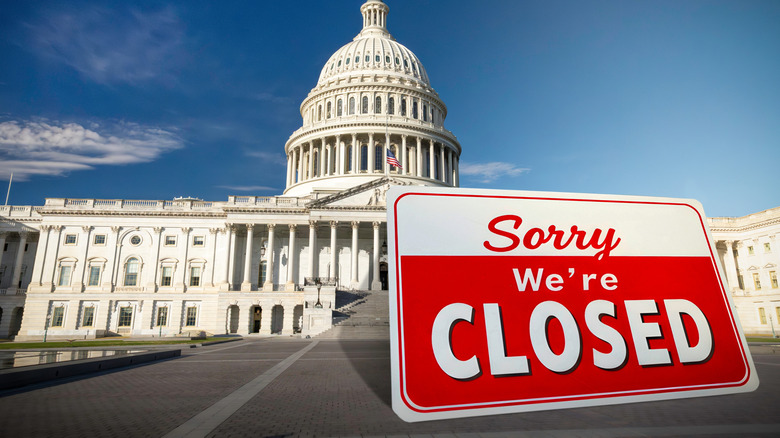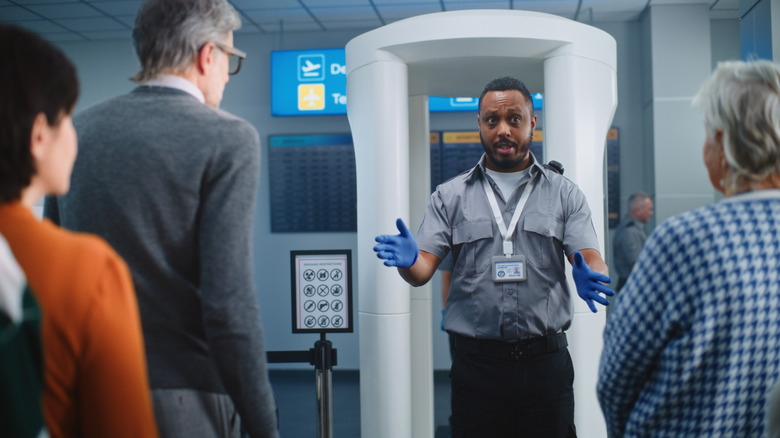Do Government Shutdowns Affect The TSA? Here's What You Need To Know
When the Senate fails to come to an agreement about new spending bills, as has been the case since October 1 at the time of this writing, the government effectively shuts down. In lay terms, the government cannot continue spending, which means agencies and services under its umbrella cannot either, and therefore, all nonessential workers cease to do their normal daily work. With flights being delayed during the shutdown, it makes sense to assume the TSA is included. But the reality is somewhere in between. That's because government shutdowns only affect the TSA indirectly. Transportation Security Administration employees are considered essential workers, so they should continue operating just fine.
However, with government spending cut off, there could be problems like missed paychecks, lost jobs, and furloughs. For example, there are reports that some TSA agents could be receiving partial paychecks, which will eventually become zero paychecks if the government stays shut down. It's important to point out here that, since they are classified as essential workers, they're expected to continue doing so without pay – with the caveat that they will receive all of their backpay once the government shut-down is over.
Naturally, many agents are calling in sick, whether to avoid working for no pay or in solidarity with the AFGE Council 100, the union representing TSA workers. That, in turn, contributes to a lack of manual labor resources across the country and ballooning travel times. If you're planning to fly over the next few weeks, you should plan accordingly for delays and other mishaps. There's never been a better time to set up a TSA digital ID pass on your Android or Apple phone. That can speed up the ID process, at the very least.
This is not the first time TSA was affected by a government shutdown
During the government shutdown in 2018, the same thing happened. That shutdown lasted for 35 days total, and hundreds of TSA agents called in sick, just like they're doing now. Also, like now, the decreased resources led to longer security screening times, flight delays, and other frustrations. That also has implications for the security of air travel, as fewer eyes on luggage and bags going through security could equal missed threats. The longer the current shutdown carries on, the more likely the delays and longer screenings will continue, and they may even grow worse.
In the past, the TSA has dealt with fewer human resources by loosening security measures used at screening checkpoints. There are fewer random physical pat-downs for passengers not in the PreCheck program. Also, airports may reduce the total number of screening and security lanes open, lengthening wait times further.
All of that means that if you're planning to travel, arrive early and expect longer screening times. If you can, avoid traveling at all, or sign up for the PreCheck process to speed it up and make sure you get to your gate on time. You should also ensure you know every TSA electronics rule that changed this year, including what you can and can't bring in your carry-on. In airports that support the technology, you could also use the TSA's biometric eGate system to streamline ID checks, although you still have to go through bag checks and physical security.

